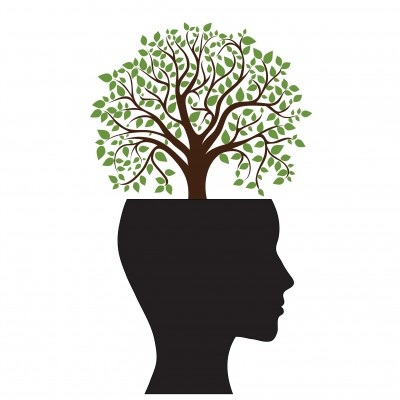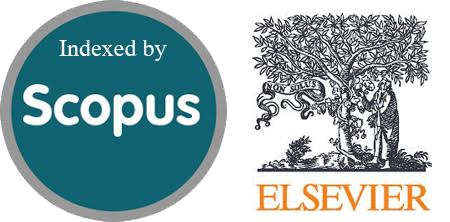ERP – Published Continuously
Since 1950
Initially called The Educand, the title was changed in 1961 to The Australian Journal of Higher Education. The present title was adopted in 1974. Throughout its history, the Journal has been multi-disciplinary in its outlook, with a mixture of general issues and issues devoted to special topics. The Journal welcomes scholarly contributions in the form of empirical research articles, review essays, commentary papers, and book reviews.

Until 2012, ERP was produced in hard copy format, and published on a bi-annual basis. In 2012, ERP became an open-access, online journal, and ceased to be made available in hard copy format. All contents of the Journal from 2000 onward are now available as open access articles. Issues of ERP published prior to 2000 are available in hard copy form and can be downloaded through sites such as Proquest. A list of article titles and authors for these prior issues is available through the Articles section of this site.
Copies of all articles published in ERP are retained by the University of Western Australia, and would continue to be publicly available via ERIC in the event that the journal ceases to operate actively.

Published in
1950

Journal Articles
250

Staff Members
6

Studies
Indexing & Abstracting

Education Research and Perspectives is indexed in Scopus, Elsevier’s abstract and citation database covering peer-reviewed literature across the sciences, social sciences, arts, and humanities. Inclusion in Scopus recognises the journal’s academic quality, editorial standards, and contribution to international educational research.
Aims & Scope
Education Research and Perspectives has now become an invitation-only journal. The Journal welcomes invited scholarly contributions in any area of education research.
Articles published in Education Research and Perspectives typically fall into two major categories.
Empirical articles must include a critical consideration of the relevant background literature, stipulating how the research reported in the paper adds to existing knowledge in the field; a detailed description of the methods used for gathering data; and a thorough discussion of findings and implications.
Commentary or review articles must focus on cutting-edge topics, and use prior research findings in a way that promotes new insights in the field.
Research is defined as the creation of new knowledge and/or the use of existing knowledge in a new and creative way so as to generate new concepts, methodologies and understandings. This could include synthesis and analysis of previous research to the extent that it leads to new and creative outcomes.
Publication Policies
Please click each title below to read more.
1. Publishing Schedule
Our journal adheres to an annual publishing schedule, with each volume representing an entire year of research. A new volume is released every December. While the exact date of publication may occasionally vary, authors and readers can expect a consistent release of content within this timeframe. We may introduce special publications throughout the year to address timely or emerging topics in the field.
2. Revenue Sources
Our journal operates under a transparent revenue model, with our primary source of income These royalties are generated through the licensing and distribution of our content, ensuring that the journal remains financially sustainable while maintaining its high academic standards. No fees are charged for manuscript submissions or processing, and our editorial decisions remain completely independent of financial considerations.
3. Copyright Statement
ERP is an open access journal which fulfils the DOAJ definition of open access. The copyright holder [The Graduate School of Education, the University of Western Australia] of a scholarly work grants usage rights to others using a Creative Commons license. This allows for immediate free access to the work and permits any user to read, download, copy, distribute, print, search, or link to the full texts of articles, crawl them for indexing, pass them as data to software, or use them for any other lawful purpose.
4. Paper Access
Our journal is committed to making its content widely accessible to readers. All articles are available through our website without any subscription or pay-per-view fees, ensuring free access to the research we publish. This open access model allows for greater dissemination and impact of our authors’ work within the academic community and beyond.
5. Archiving
To ensure the long-term preservation and accessibility of all content, Education Research and Perspectives (ERP) employs robust archiving solutions provided by the University of Western Australia.
6. Advertising
Currently, our journal does not feature any advertising. Should this policy change in the future, we will provide clear guidelines on what types of advertisements will be accepted and how decisions regarding advertisements are made. Any advertising will remain separate from editorial content and will not influence the journal’s decision-making process.
7. Direct Marketing
ERP does not engage in any direct marketing activities. We do not send unsolicited emails or promotions, and we do not solicit manuscripts through mass communications. All engagement with authors and readers is organic and based on the academic community’s interest in our journal. Any information shared about ERP is done so through professional and transparent channels.
Publication Ethics
Our journal is committed to maintaining the highest standards of publication ethics, following best practices in scholarly publishing. The following policies are designed to ensure the integrity, transparency, and ethical conduct of all our publications.
Please click each title below to read more.
1. Complaints and Appeals
The journal takes all complaints seriously and will handle them in a fair and transparent manner. Authors or readers can submit complaints or appeals, and these will be addressed following a structured process to ensure an impartial review.
2. Conflicts of Interest / Competing Interests
All authors, reviewers, and editors are required to disclose any potential conflicts of interest. This ensures that there is no undue influence on the research or publication process, maintaining the objectivity and integrity of the journal.
3. Data Sharing and Reproducibility
Authors are encouraged to share their research data where possible to facilitate reproducibility and further research. Our journal supports open data initiatives and expects authors to provide clear data availability statements, where relevant.
4. Ethical Oversight
The journal ensures that all research meets ethical standards, particularly in research involving human or animal subjects. Ethical approval must be obtained, and authors must provide appropriate documentation.
5. Intellectual Property
We respect intellectual property rights and require authors to ensure that their work is original, properly cited, and free from plagiarism. The journal actively checks for any form of intellectual property violation.
6. Post-publication Discussions and Corrections
The journal welcomes post-publication discussions and provides opportunities for readers to engage with authors through letters or comments. In cases of errors or misconduct, the journal will issue corrections, retractions, or updates to published articles.
7. Plagiarism and Duplication Policy
We perform random checks of submitted manuscripts for plagiarism and duplication using plagiarism detection tools such as Turnitin. We publish only original content, thus manuscripts in which there is evidence of plagiarism or duplication will not be considered for publication in ERP.
